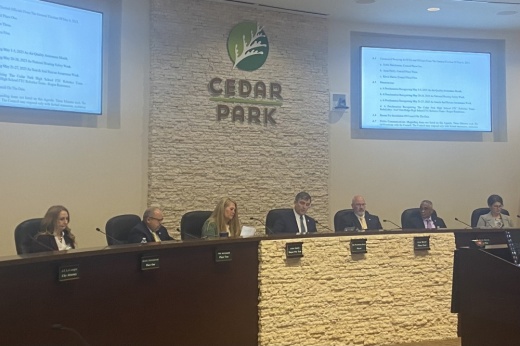The new ordinance cleans up existing practices, addresses development issues in the city and maintains greater consistency with state law, said Andreina Dávila-Quintero, the city’s assistant director of development services.
The highlights
- Special use permits are now required for car washes, gas stations and private schools.
- Portable buildings were added to the zoning code for temporary use.
- Alcohol sales requirements for businesses were updated to reflect state law.
- Requirements for certain developments in nonresidential districts were lessened.
Special use permitting
The amended zoning code now requires car washes, gasoline service stations and private schools to have special use permits, which may only be issued after a recommendation by the planning and zoning commission and approval from City Council.
Dávila-Quintero said the changes come due to a large concentration of car washes and gas stations forming along the city’s major corridors and the impact private schools have on the surrounding areas.
Previously, private schools were permitted by right in the city’s commercial districts while requiring a special use permit in all remaining residential and industrial districts. The amendment now requires private schools to have special use permits in every city district, including the four commercial districts.
Car washes and gas stations, previously permitted with conditions in general business and heavy commercial, will now require a special use permit in those districts.
The planning and zoning commission recommended the amendments for approval to City Council excluding the special use permitting requirement for private schools, expressing concerns over hindering private school development.
Cedar Park Development Services staff recommended the amended code, including special use permitting for private schools, which was approved by City Council on May 30.
“We don’t want to interfere with what people can develop by right, but to have a logical conversation and ask pertinent questions when developments come before us, I think that’s necessary,” Mayor Pro Tem Anne Duffy said.
Portable buildings
To address the growing use of portable buildings in Cedar Park, city officials added a temporary use classification for portable buildings to the zoning code, Dávila-Quintero said. She said the city’s zoning code did not previously address portable buildings.
Alcoholic beverage requirements
Land use concerning alcohol sales was updated “to be consistent with state laws,” Dávila-Quintero said.
Alcoholic beverage establishments are now businesses that make 60% or more in gross sales from alcohol instead of 51% previously, while dine-in-only restaurants must make less than 60% of their sales from alcohol instead of 51%. A provision maintaining that alcoholic beverage establishments be at least 300 feet away from a child care center or day care was also removed.
The code now allows drive-in or drive-thru restaurants to sell alcohol if it makes up less than 60% of total sales. Restaurants and bars have been allowed to sell to-go alcoholic beverages in the Texas since 2021.
Definitions for civic clubs, places of public assembly, reception/banquet halls and mobile food courts were updated. A mobile food establishment court must now have two or more food trucks instead of one.
Nonresidential requirements
Several changes in the zoning code lessen the intensity of requirements for some developments in nonresidential districts, such as minimum lot size, building articulation—which is when building walls protrude out or face in—and facade treatment, architectural features adding to the face of a building.
Meeting the previous requirements was a challenge for certain developments, such as business parks or campuses built across multiple lots, large warehouse spaces, or small buildings not large enough to meet requirements, Dávila-Quintero said.
Mixed-use requirements
The requirement for horizontal mixed-use developments to be a minimum of 40% nonresidential and a maximum of 60% residential at completion now applies to each phase of the development.





